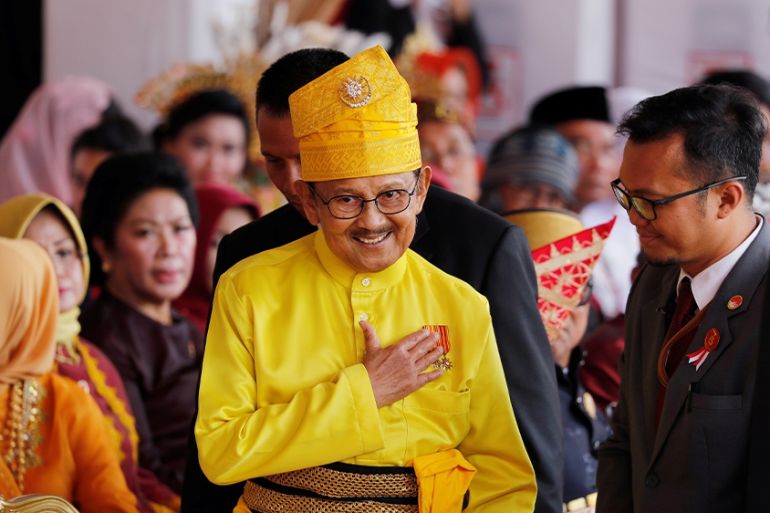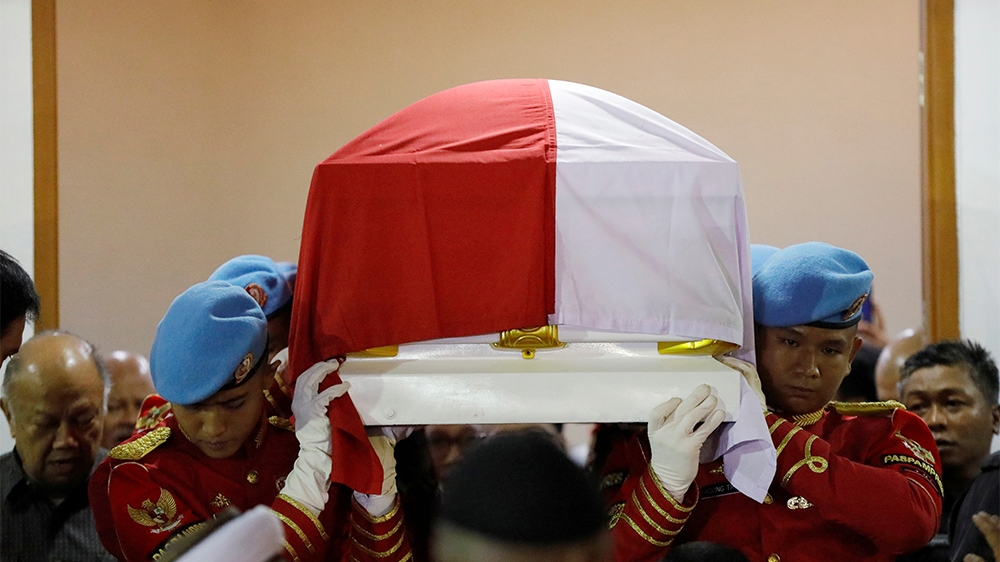BJ Habibie, who oversaw Indonesia’s transition to democracy, dies
Habibie, was an engineer, oversaw Indonesia’s transition to democracy and the referendum on East Timor’s independence.

Indonesia‘s former President B J Habibie, who came to power during the country’s turbulent transition to democracy after former strongman leader Suharto stepped down in 1998, has died, his son said on Wednesday evening.
Habibie, 83, had been suffering from heart problems and was in hospital, Thareq Kemal Habibie told Metro TV.
An engineer by training, Habibie succeeded Suharto as Indonesia’s third president only months after becoming his deputy, just as the country was rocked by spasms of rioting and economic upheaval triggered by the Asian financial crisis.
His time in power was marked by his decision to allow a referendum on independence for the people of the former Portuguese colony of East Timor, which had been annexed by Indonesia in the 1970s.
In January 1999, Habibie said East Timor could have independence if its people rejected autonomy within Indonesia. The East Timorese voted in favour of independence triggering a wave of violence. The country is now known as Timor-Leste.

Habibie was born in June 1936 in South Sulawesi and studied aviation and aerospace engineering in Germany and the Netherlands before returning home in the mid-1970s.
Suharto asked him to help industrialise the country.
He chaired the state-owned aviation company Industri Pesawat Terbang Nusantara and then served as minister of research and technology for 20 years.
President Joko Widodo, in a televised speech announcing Habibie’s death, described Habibie as a “world-class scientist and the father of technology in Indonesia”.
Habibie served for just 17 months as president – he withdrew from contention in the October 1999 election – and was succeeded by Abdurrahman Wahid, popularly known as Gus Dur.
Malaysian politician Anwar Ibrahim paid tribute to Habibie as “family”, recalling the Indonesian’s support during his years in prison.
“He was no ordinary politician,” Anwar wrote on his Facebook page. “BJ Habibie spoke from confidence as well as conscience.”
Habibie is survived by his two sons.